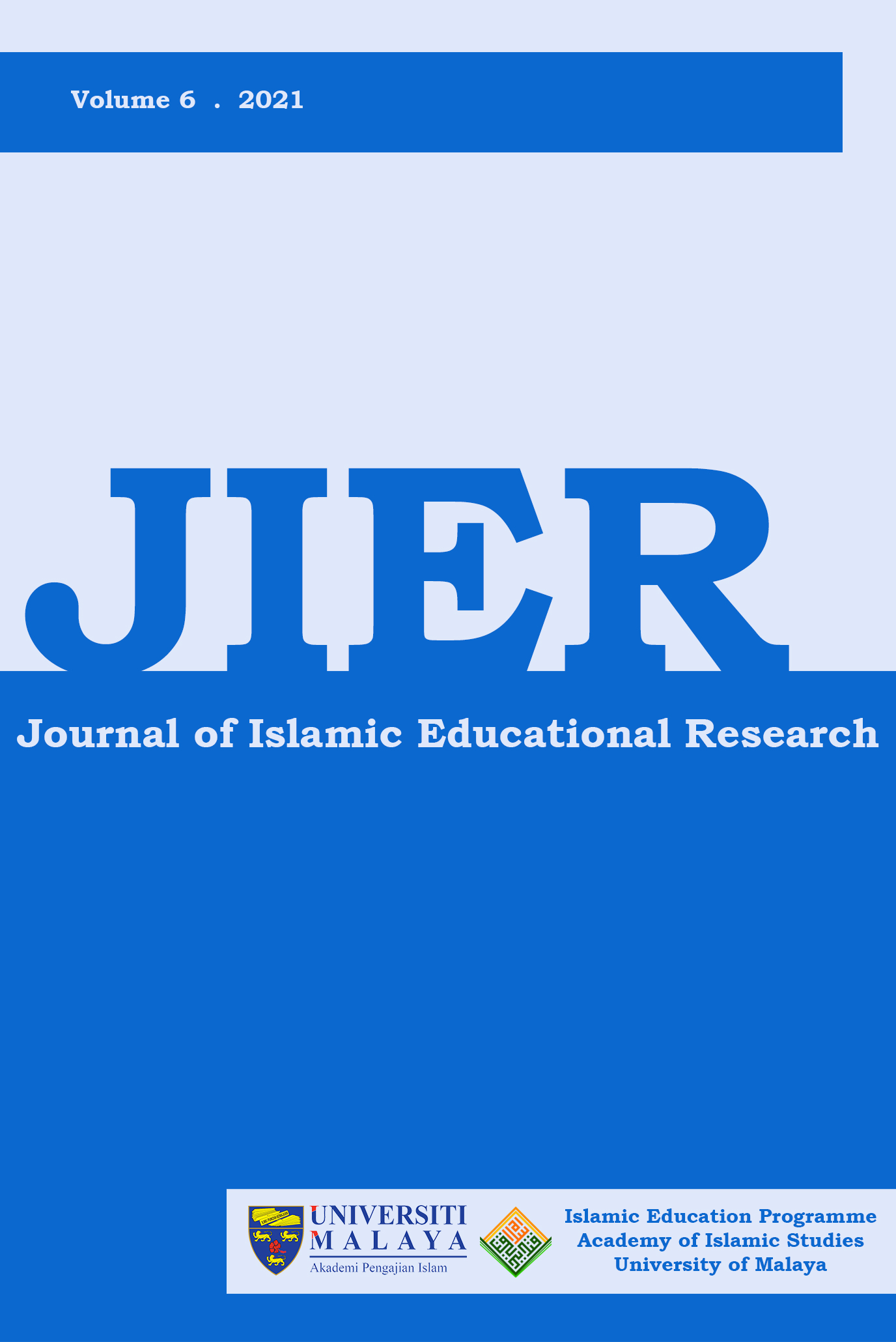أثر التدريس التأملي في تنمية التفكير التأملي ورفع الجودة التعليمية من المنظور الإسلامي لدى معلمات مدرسة أم الخير للتعليم الأساسي في سلطنة عمان
EFFECTIVENESS OF TRAINING PROGRAM IN REFLECTIVE TEACHING IN THE DEVELOPMENT OF REFLECTIVE THINKING AND RAISING EDUCATIONAL QUALITY FROM AN ISLAMIC EDUCATIONAL PERSPECTIVE AMONG UMM AL-KHAIR BASIC EDUCATION SCHOOL TEACHERS IN OMAN
DOI:
https://doi.org/10.22452/jier.vol6no2021.5Keywords:
Training Program, Reflective Teaching, Reflective Thinking, Educational Quality, OmanAbstract
This study aims to identify the effectiveness of training program in reflective teaching in the development of reflective thinking and raising educational quality from an Islamic educational perspective among Umm al-Khair Basic Education school teachers (10-12) in Oman. The study sample consists of 19 teachers from the school which represents 29% of the original population. The study was implemented in the academic year 2014-2015. Pre-post scale in reflective thinking was administered to assess reflective thinking, including 54 statements divided into 4 main levels. Suitable statistics test was used such as mean, standard deviation and T-Test for paired samples. The study sample undergoes a training program on reflective teaching practicing several tools which are dealt descriptively. The results of the study showed that there are statistical significant differences at (α = .05) between the means scores of reflective thinking in favor of post administration. Thus, the study recommends that it is important to include reflective teaching tools in pre and in-service training programs teachers. In addition, the study recommended doing more research in this area on students and other school stuff.
Downloads
Downloads
Published
How to Cite
Issue
Section
License
The published manuscript shall be a copyright of the Islamic Education Programme, Academy of Islamic Studies, University of Malaya, Kuala Lumpur, Malaysia. The published manuscript would not represent the stand or opinion of the Advisory Board, Editorial Board, Co-Editorial Board and the Management Team of Journal of Islamic Educational Research (JIER), or the Islamic Education Programme, Academy of Islamic Studies, University of Malaya.
Note: This is an open access journal which means that all content is freely available without charge to the user or his/her institution. Users are allowed to read, download, copy, distribute, print, search, or link to the full texts of the articles in this journal without asking prior permission from the publisher or the author. This is in accordance with the BOAI definition of open access.






